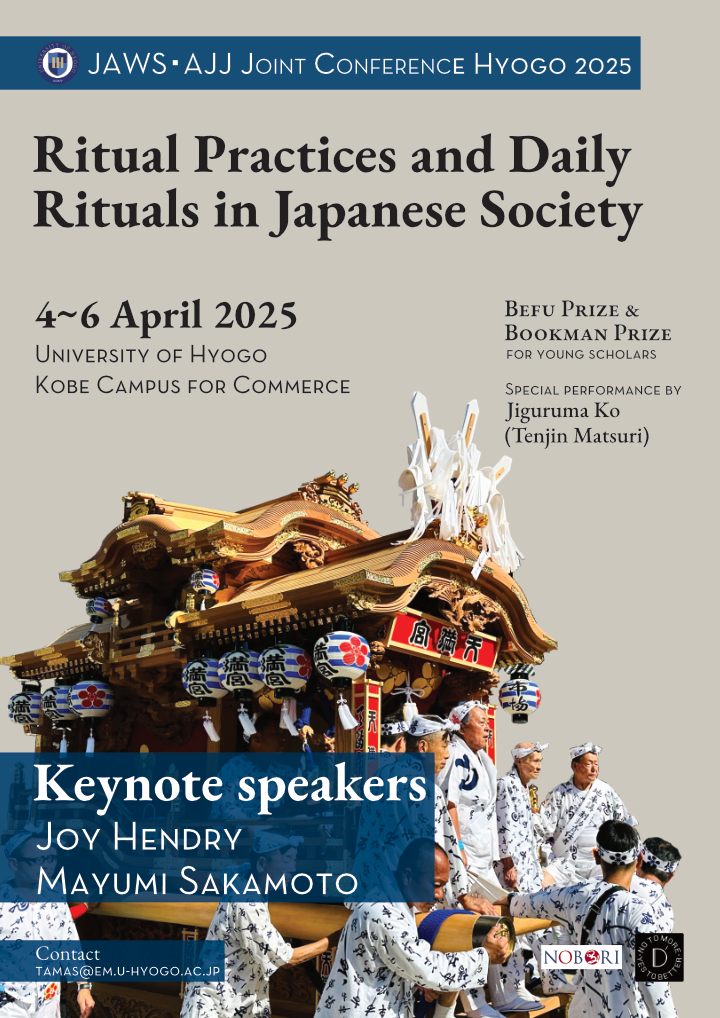The Japan Anthropology Workshop (JAWS) and the Anthropology of Japan in Japan (AJJ) joint conference will be held in Kobe from April 4th (Friday) to April 6th (Sunday), 2025. The conference will take place in person, focusing on the theme: Ritual Practices and Daily Rituals in Japanese Society.
The conference and its program will be organized by Carmen Tamas (University of Hyogo). For inquiries, please contact her at tamas@em.u-hyogo.ac.jp.
Venue: University of Hyogo, Kobe Campus for Commerce, Kobe, Japan
Further organizational details will be provided soon.
Call for Panels & Papers
Ritual Practices and Daily Rituals in Japanese Society
The 21st century began as one of the most prosperous periods in human history, only to be profoundly affected by a pandemic and multiple wars, which have had a deep impact on society as a whole. As anthropologists, our role is to document, interpret, and possibly offer solutions for a better future. A significant part of understanding human behavior is the analysis of ritual and ritual practices.
In this edition of the JAWS/AJJ Conference, we aim to explore the role of ritual practices in Japanese society from various perspectives. Rituals can be sacred or social, serving as a form of cultural communication that transmits the cognitive categories and dispositions that shape people’s perceptions of reality (Bell 2009). By analyzing the underlying mechanisms of rituals, we can gain a deeper understanding of human society, as well as the universal and culturally specific aspects that define our communities.
As Joy Hendry suggests, “In many anthropological studies, ritual and religion are closely related, although in complex societies, there is often no particular connection between them, and the term ‘ritual’ may also refer to behavior, like etiquette, that is determined by society and where individuals have little choice in its execution.”
Rituals have always been a key focus for anthropologists, both globally and in Japan. While rituals are not difficult to identify, they are open to numerous interpretations and approaches, drawing interest from social psychologists, folklorists, scholars of religion, communication, the performing arts, and more. We do not seek to impose a specific definition of ritual, as this could be contentious. Instead, we encourage participants to focus on the concept of change. How would you define ‘ritual’ in your research? How has it evolved? This is the central debate we wish to foster, with the goal of deepening our understanding of modern Japan and inspiring broader discussions within world anthropology.
With this broad scope in mind, we welcome papers and panels that explore various dimensions of ritual in Japan, including religious practices, societal rules and ceremonies, individual acts within a larger community practice, and social acts that gain ritual value through repetition and formalization.
We also invite presentations from other academic disciplines focused on ‘Ritual,’ welcoming feedback and collaboration with the exceptional body of knowledge shared by JAWS & AJJ. What we achieve together is what matters most.
Submission Deadline
Proposals should be sent to carmen.s.tamas@gmail.com by January 15, 2025.

